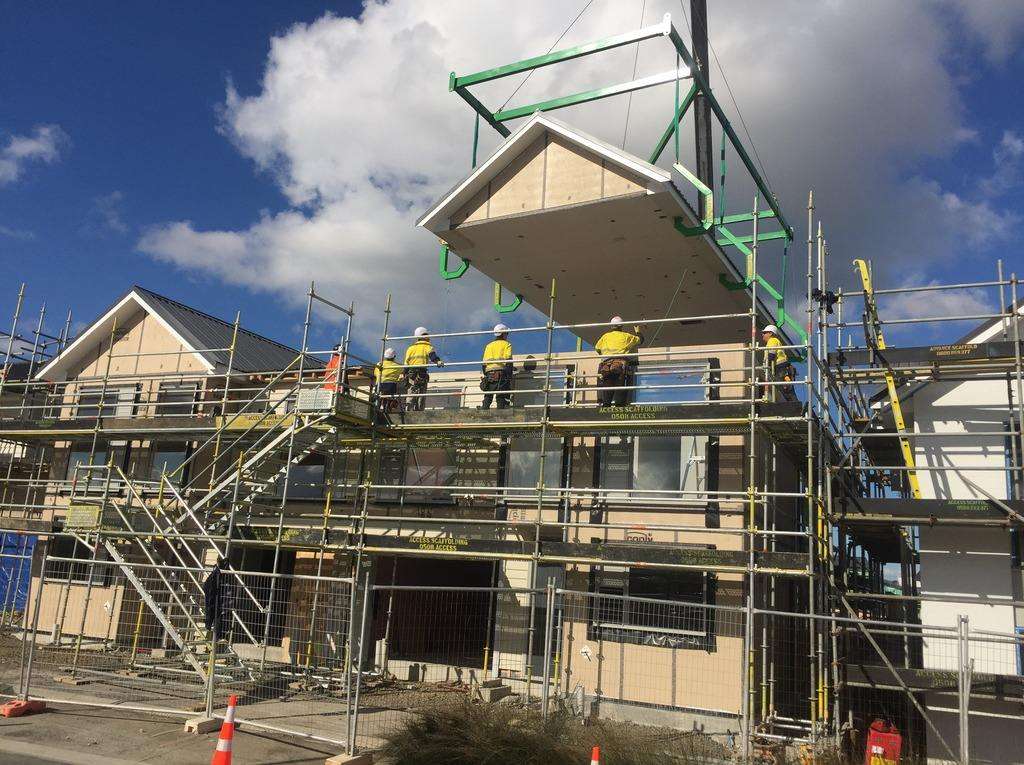New home buyers are at risk of having the rug pulled under them by banks changing lending criteria.
Buyers often don’t realise that pre-approval is for a limited period of time, says mortgage broker Geoff Bawden, of Bawden Consulting. If a build runs over the pre-approval period, buyers are at risk of losing their finance. Banks have been changing their criteria, which means some buyers won’t now qualify for a new pre-approval This can even happen after the bank has released the deposit.
Thanks to supply chain issues, lockdowns and other factors many builds are taking 18 months to two years, says Nick Kearney, property lawyer at Davenports Law. Pre-approval doesn’t last that long.
Preapproval tells buyers they can borrow $x unless the bank changes its mind, says Bawden. It has to be matched to a property that the bank approves of and it’s for a limited period of time.
Start your property search
Banks are sometimes forced to change their approval criteria thanks to government or Reserve Bank of New Zealand policy changes, says Mortgage Lab founder Rupert Gough. Sometimes they do it for their own commercial reasons.
Some of those criteria that can change include:
• Deposits required: When the loan-to-value ratio (LVR) rules change banks have no choice but to change their criteria.
• Income: banks can and do change the percentage of commission, bonuses and overtime they will count as income. They can scale up or down. Likewise banks may not allow self employed people to claim depreciation against their expenses, which affects the amount of their income that can be considered for mortgage borrowing.
• Rent: banks have a percentage of rent payments that they count as income and will dial up or down the scaling on that.
• Credit laws: When credit laws or policies change the banks must follow. Imminent changes to the Credit Contracts and Consumer Finance Act 2003 (CCCFA) banks will need to look harder at all mortgage applications including lapsed pre-approvals.
• Small apartments. Banks have a bottom line for the size of an apartment they will lend on; typically 40m2.
• Debt-to-income ratios (DTIs). The Reserve Bank is expected to impose debt to income ratios on buyers. These would limit the amount people can borrow based on their income.
Kearney says the pre-approval issue is a growing concern for him. He saw the effect the global financial crisis (GFC) had on buyers and developers, with many purchases falling over and banks being caught.
“We have had a few clients now who have had their lending declined. Ordinarily they might be fine.” It’s not a perfect storm yet, he says, but it may be in two to three years’ time when interest rates are higher.
Under pressure
Bawden says he had nine buyers in the same development who all had to reapply for their pre-approval when the build ran over. They all succeeded in the end, but it was a stressful time, he says.
First home buyers are often worried that the bank will pull the plug on them in these situations, says Lesley Harris, director of the First Home Buyers Club.
She spoke with one couple recently that had gone unconditional on a build that was taking longer than their pre-approval. “The wife was going to go on maternity leave after the expiry of the pre-approval. I said, ‘Get on to your lender immediately and just get that extended hours before you go down to the one wage’.”

Construction delays can often beset new developments and this can have an impact on buyers. Photo / Getty Images
In the past couple of months two banks have dialled down the scaling of the percentage of rent they accept as income, which could affect investors sitting on pre-approval. Until recently that was 75 to 80% of rent. The ANZ and ASB have reduced that and it’s more likely to be around 60%.
The reason behind the move is changes to interest deductibility for investors that starts to kick in next month. Investors will be limited in the percentage of mortgage interest they can claim against their rent on existing properties. Interest deductibility on mortgages is being gradually phased out between October 1 and March 31, 2025.
New builds are exempt from this new tax rule, but not all banks are differentiating. The ANZ has only reduced the scaling on existing properties, whereas the ASB is said to be applying it to both existing properties and new builds.
Goalposts have moved
The scaling sometimes affects first home buyers who buy rental properties out of town because they can’t afford to buy in the big cities, says Harris. Because first home buyers typically have the smallest deposits they’re the worst hit when the goalposts change, says Harris.
Buyers who find themselves in this situation do usually have some options.
Typically with new builds, Gough will secure 12-month pre-approval for clients. Six months in he will get the buyers to reapply so that they have breathing space if the build takes longer than expected.
If they can’t get pre-approval renewed with a bank they could go to a non-bank lender such as Pepper Money NZ or Resimac, says Bawden. Or they could put the property on the market. This is fraught, he says, because the home is no longer “new” and will be less desirable to investors for tax reasons and first home buyers for KiwiSaver withdrawal.
Gough says in a situation where a buyer has gone unconditional, but can’t settle, “nice” developers will sometimes take the property back to market solving this problem.
















































































